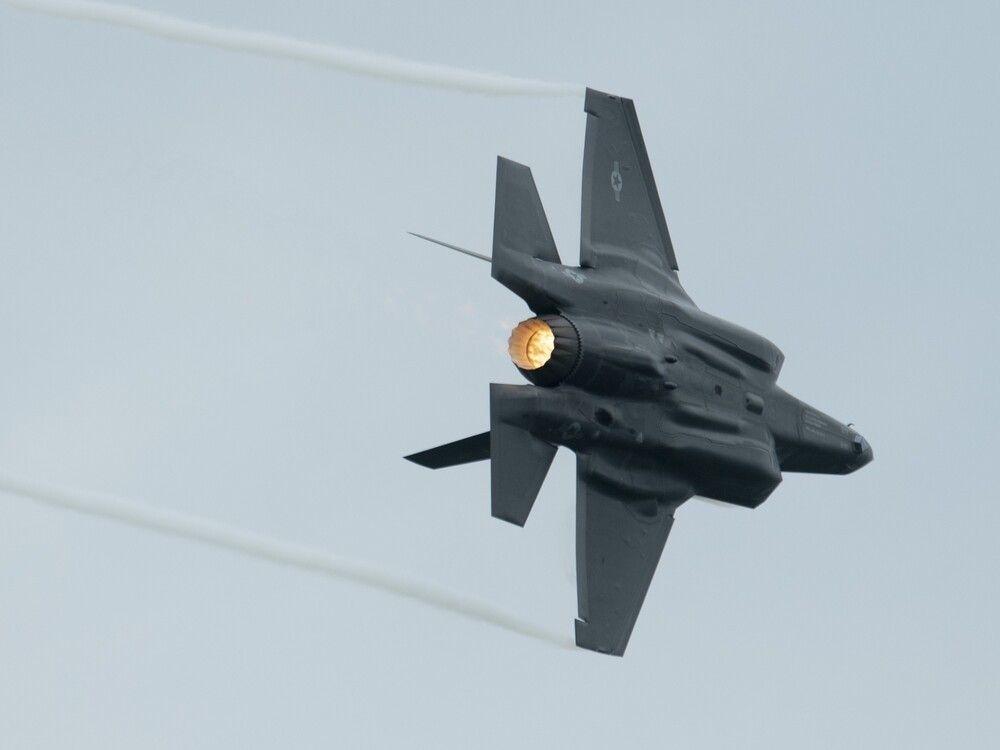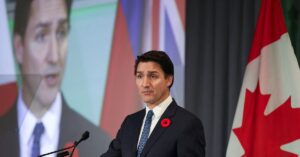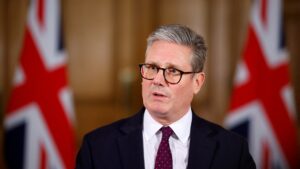
With the latest announcement of a defence contract for an Ottawa-based firm, the Liberal government seems intent on sending the message to the U.S. that it has heard its concerns and is moving forward on acquiring new equipment.
The government’s statement Wednesday that it has awarded General Dynamics Mission Systems a series of contracts worth $1.68 billion caps a year in which the Liberals have announced $30 billion in new defence deals. Those contracts have been almost exclusively awarded to U.S. firms.
The American government has put intense pressure on Canada to spend significantly more on its military. David Cohen, the U.S. ambassador to Canada, acknowledged to the National Post in 2022 that Canada was the sixth-largest spender in NATO, but said it still needed to do more. He called the $8 billion in extra funding at that time for the Canadian Forces a “little disappointing.”
In the last year, however, the Liberals have tried to convince the Americans that they won’t disappoint when it comes to defence.
In February, then-defence minister Anita Anand and François-Philippe Champagne, minister of Innovation, Science and Industry, travelled to Washington to reassure American lawmakers and defence executives of their willingness to co-operate. During their three-day visit, the two cabinet ministers met with senior executives at major U.S. defence and aerospace companies, including Lockheed Martin, Boeing, General Dynamics and Raytheon.
The last year has been good for those firms when it comes to Canadian spending.
Canada has committed to spending $19 billion to purchase Lockheed Martin’s F-35 stealth fighter, an aircraft that Prime Minister Justin Trudeau had previously claimed was not needed by Canada.
On Nov. 30, the Liberal government announced an $8-billion deal with Boeing for the purchase of new surveillance aircraft. Previously, Liberal cabinet ministers had claimed Boeing was not an industrial partner that could be trusted.
On Dec. 19, the Liberal government announced a $2.5-billion deal with U.S. company General Atomics for the purchase of Predator drones. Canada will also spend $400 million to buy Hellfire missiles from the U.S. and Lockheed Martin so the drones can be armed.
Politics was also at play in March, when the Liberal government announced it was spending $1.4 billion to expand the Ottawa base for the Joint Task Force 2 counter-terrorism unit. While the announcement came in the midst of U.S. President Joe Biden’s visit to Ottawa, documents obtained by this newspaper showed that the Liberals had already approved the expansion in June 2022, and government had signed the first contract on Nov. 22, 2022.
Military officials privately acknowledged the official announcement was delayed until the week of Biden’s arrival in Ottawa so as to send a message to the U.S. government that Canada was focused on increasing military spending.
Defence Minister Bill Blair emphasized the spending of the last year in his statement Wednesday about the General Dynamics Mission System contracts. “This year, we have made tangible progress on several major procurements for the Canadian Armed Forces, from the procurement of over 100 new aircraft for the Royal Canadian Air Force, to new Arctic and Offshore Patrol Ships being delivered to the Royal Canadian Navy,” he said.
The Canadian spending of the last year, which will help shore up well-paying American defence and aerospace jobs in locations from Texas to California, has already changed the tone of comments coming from the U.S.
In an interview aired Dec. 17, Cohen, the U.S. ambassador to Canada, told Global News that the Americans were now confident about Canada’s level of defence spending. And Cohen said he had received assurances even more money was coming with the release of the Liberal defence policy update.
Defence insiders say they expect the next big project to move forward is the Canadian Surface Combatant warship program. The budget for that is at least $80 billion and much of the work is being overseen by Lockheed Martin, the U.S. defence giant. The Liberals are expected to approve the construction of the first three ships.
In preparation for that, in September, it emerged that Canada was quietly spending $85 million for Lockheed Martin to build a testing facility for the ships in New Jersey. Those Canadian tax dollars will finance jobs in New Jersey, Florida and New York.
An online message last weekend by the 39 Canadian Brigade Group, based in Vancouver, with the Conservative party material disappeared after a complaint was received and was replaced with a more generic message on mental health and the new national 988 crisis line.
The writer endorses the Ottawa Riverkeeper’s position that the city needs to reduce its use of salt on roadways to protect its waterways.







